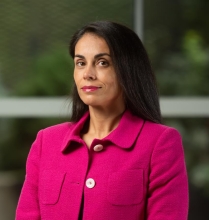Eighth anniversary of the adoption of the SDGs: UN turns on a rescue plan for people and planet

On the eighth anniversary of the approval of the 2030 Agenda and the 17 Sustainable Development Goals (SDGs), the 2023 SDG Summit, which has been held in New York on 18-19 September, starts up a new phase of accelerated progress towards their achievement with the implementation of a rescue plan for people and planet.
On 25 September 2015, the United Nations (UN) General Assembly adopted the resolution Transforming our world: the 2030 Agenda for Sustainable Development, a call to action in order to change the world in 15 years, which included the 17 SDGs and their relevant targets.
On the eighth anniversary of the SDGs and past the halfway point of the deadline set by the United Nations for their achievement, the outlook is, according to the UN, discouraging but not impossible.
Specifically, the Sustainable Development Goals Report, which has been published by the United Nations on 10 July 2023, is clear and overwhelming in stating that, out of the total of around 140 targets for which there is data, about half of them are moderately or severely off track and, what is worse, more than 30% have made no progress or have fallen below the 2015 baseline. The report argues that, if current trends go on, by 2030:
- More than 575 million people will live in extreme poverty and barely one third of countries will have met the goal of reducing national poverty by half.
- It will take 286 years to bridge gender gaps with respect to legal protection and remove discriminatory laws.
- In the field of education, the impact of years of underinvestment and learning loss is such that around 84 million children will be out of school and 300 million children or young people will leave school without being able to read and write.
- The goal of limiting the global temperature rise to 1.5°C will not be achieved, nor the worst effects of the climate crisis will be avoided.
- Renewable energy sources will continue to generate only a small part of our energy, around 660 million people will continue to lack electricity and about 2 billion people will carry on relying on polluting fuels and technologies for cooking.
- It could take another 25 years to halt deforestation.
The concrete data provided by the report are much more extensive and worrying. In response, the UN proposes a radical change: a rescue plan for people and planet, putting forward a series of urgent measures to member states in five priority areas:
- Heads of State and Government must commit to take accelerated, sustained and transformative measures over the next seven years, both at national and international level, to carry on the commitment of achieving the SDGs.
- Governments should promote concrete, integrated and targeted policies and measures to eradicate poverty, reduce inequality and put an end to the war against nature, with an emphasis on promoting the rights of women and girls and empowering the most vulnerable.
- Governments must strengthen capacity, accountability and public institutions at national and subnational level to speed up progress towards the SDGs.
- The international community must recommit at the SDG Summit to the Addis Ababa Action Agenda and call up the resources and investments needed for developing countries, and in particular, countries in special situations and those experiencing acute vulnerability, to achieve the SDGs.
- Member States should ease the further strengthening of the UN development system and increase the capacity of the multilateral system to address emerging challenges and address the gaps and weaknesses in international architecture related to the SDGs that have become evident since 2015.
These measures have already been launched at the 2023 SDG Summit, where a political declaration was adopted at the highest level by Heads of State and Government and high-level representatives. This declaration, among many other commitments, notes the concern and alarm at the current situation and states the commitment to the implementation of the 2030 Agenda and its SDGs, as well as to the Addis Ababa Action Agenda.
One step further, prior to the long-awaited Future Summit, to be held on 22-23 September 2024 in New York, which will have as a key milestone the adoption by Heads of State and Government of an action-oriented "Pact for the Future", which will show global solidarity for current and future generations.
Contacts


